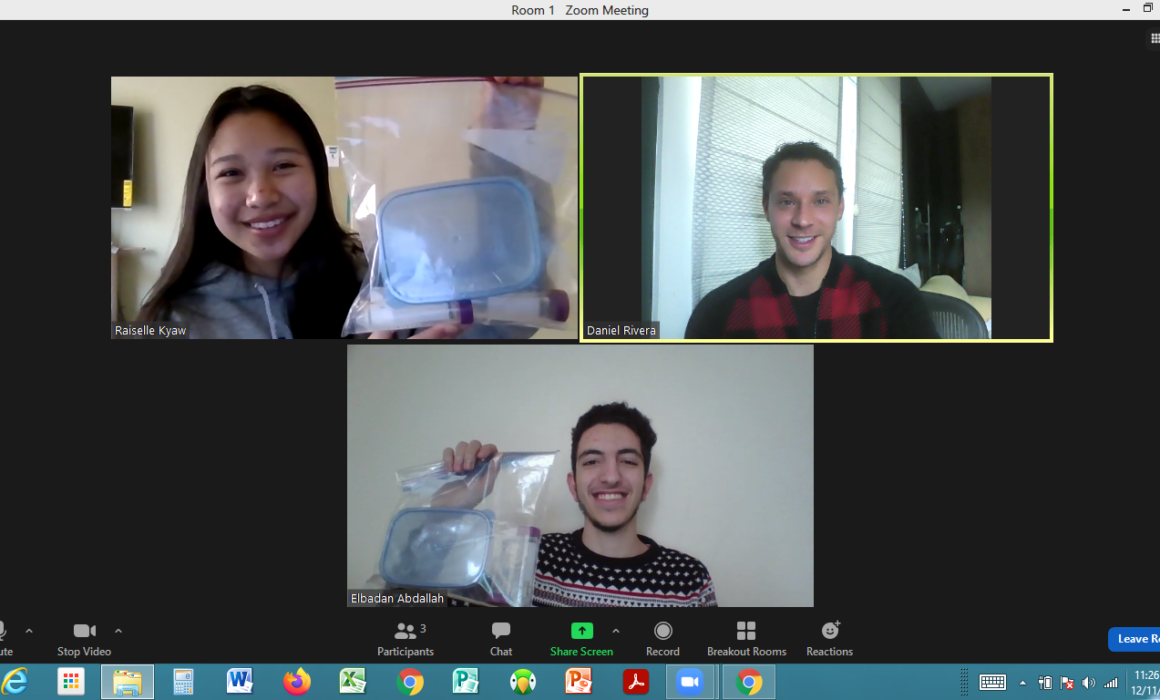
Students can’t visit their school’s science lab during the pandemic, but the lab has come to them, thanks to science kits created by inventive biotechnology teachers for students learning at home.
In San Mateo County — biotech capital of the world, with groundbreaking companies that include Pfizer, Genentech and Gilead — nine high school biotech teachers formed a partnership with Skyline College in San Bruno, creating a dual-enrollment program allowing high school students to receive college credit for cutting-edge classes in a field that incorporates biology, chemistry, math, physics and DNA, and offers exciting, well-paying careers.
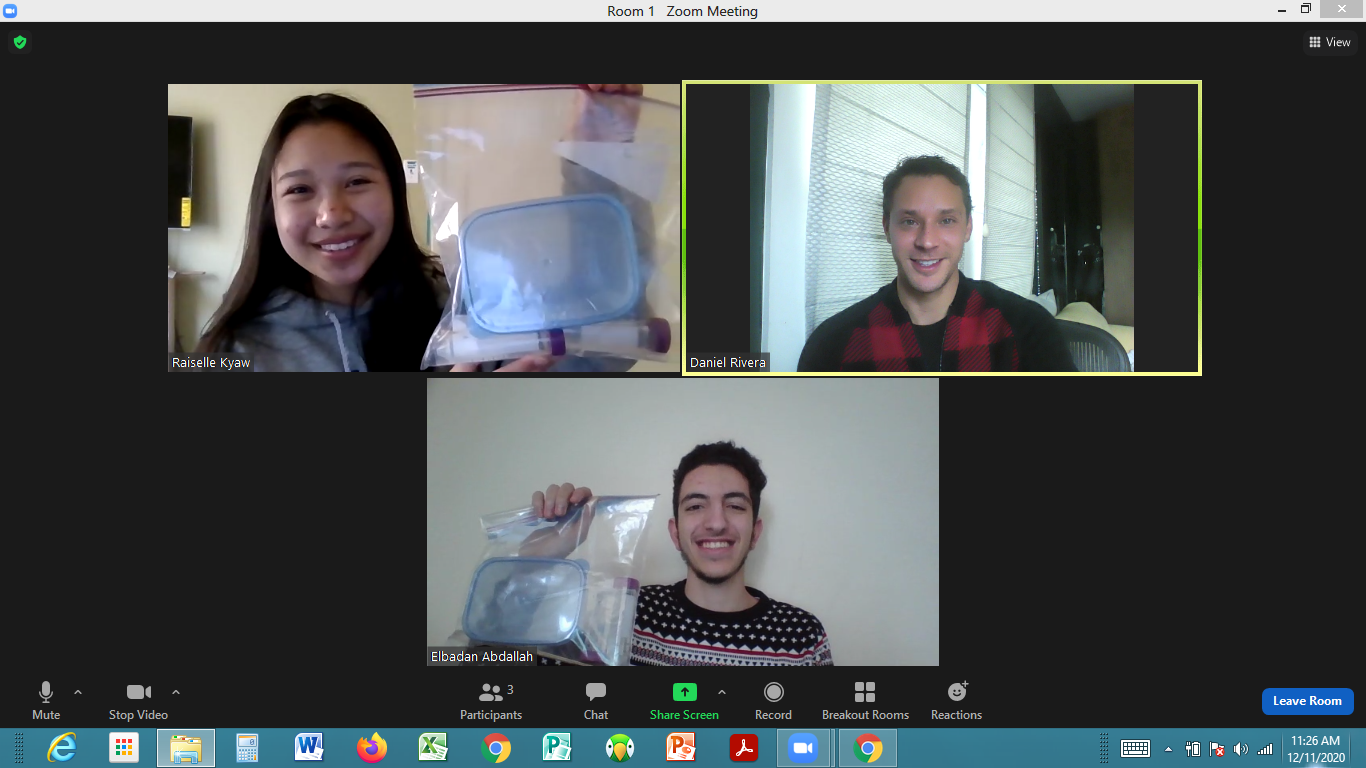
Daniel Rivera (top right) Zooms with students Raiselle Kyaw and Elbadan Abdallah, holding their home science kits.
Andrea Vizenor, dean of strategic partnerships and workforce development at Skyline College, fostered the partnership with the high school teachers, connecting them with the community college’s professor Nick Kapp. Before COVID-19, they collaborated to create hands-on lab experiments to teach students about biotechnology.
When the pandemic hit, San Mateo County schools went online and the partnership ramped up. The educators didn’t want to go from hands-on instruction to just lecturing. They were afraid boredom might set in, despite the fascinating subject matter. So they collaborated on curriculum via Zoom over the summer. And thanks to Skyline, which donated money and supplies, they were able to create science kits to send home with students, who are still doing distance learning.
Collaboration with college
“Skyline College was awesome,” says Daniel Rivera, a biotech teacher at El Camino High School and a South San Francisco Classroom Teachers Association (SSFCTA) member. “They bought the materials for us, and schools used these supplies to put kits together. We wanted to make sure that whatever students do at home is still meeting standards for the class — as well as CTE [career technical education] standards. The experiments are challenging enough to cover important concepts, but can be done safely.”
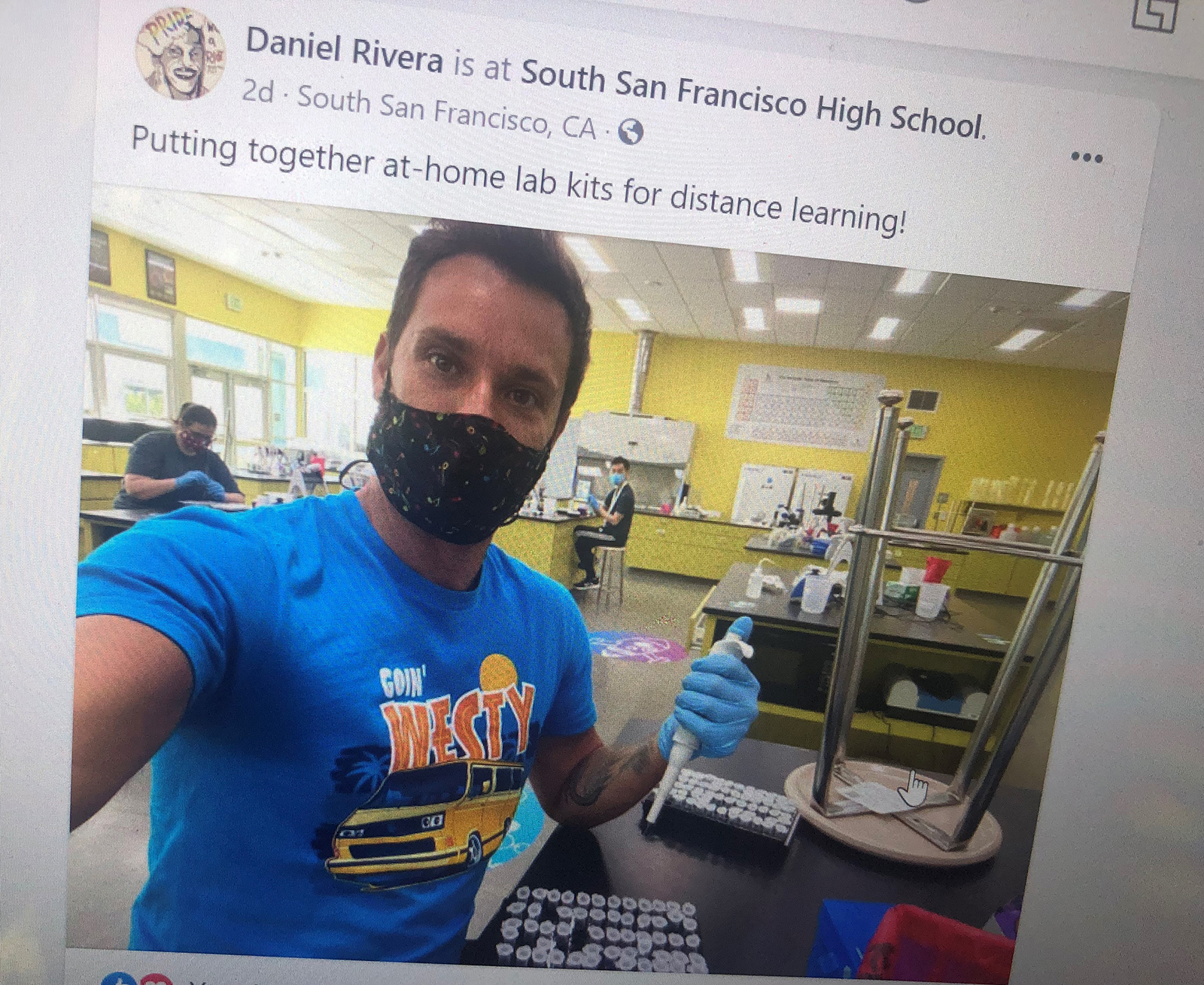
“The experiments are challenging enough to cover important concepts — but can be done safely.” —Daniel Rivera, South San Francisco Classroom Teachers Association
For example, a basic skill is learning how to mix solutions of various mass/volume concentrations and percentages. But since chemicals typically used in labs could not be sent home with students, students used Kool-Aid. They were asked to create different concentrations of the liquid with transfer pipettes, and to create flow charts that demonstrate the math scale used to calculate the strength of the concoctions.
To learn how to sort and compile data, teachers created an experiment where students weighed eggs based on size. They looked at the averages of the eggs and any kind of inconsistencies in the data, using graphs and tables to report findings in Google Docs.
Another experiment had second-year biotech students themselves design a protocol — detailed, step-by-step instructions on how to carry out an experiment — for how to propagate succulents (growing a plant from an existing plant cutting) and then figure out how certain variables could change or influence the results, charting their findings.
Kits included notebooks, clear plastic cups, batteries, eye protection, funnels, potting soil, spatulas, ultra fine Sharpies, transfer pipettes, glucose tubes, diabetic glucose test strips, glue sticks, washi tape, small scales, and various powders that are not combustible.
Building a pipeline to the biotech industry
Nine teachers and approximately 1,000 students in San Mateo County participate in this project, says Rivera, who teaches a two-year elective program. Students often make videos of themselves doing projects, explaining the process, such as extracting DNA from wheat germ out of a tube.
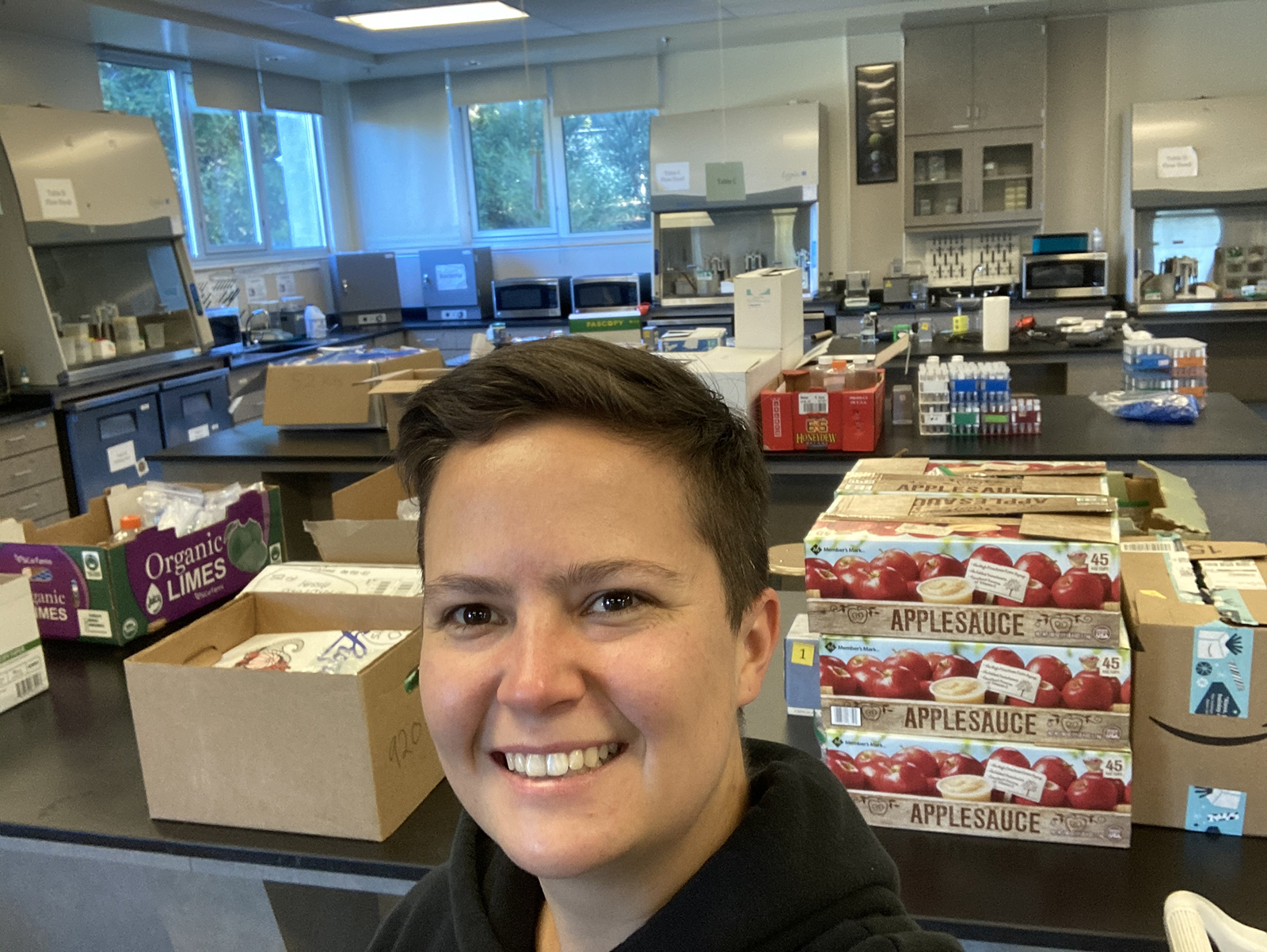
“Students may not have been able to do fancy stuff we normally do with DNA or extracting enzymes, but they understood the processes involved from these at-home experiments.” —Leslie Burndon, Sequoia District Teachers Association
“It would have been boring without these labs,” says Raiselle Kyaw, a senior in Rivera’s program. “They were fun to do and helped us understand concepts like flow charts and analyzing data. I definitely plan to work in the field of science or biotech.”
“We’re learning a lot of stuff,” says classmate Elbadan Abdallah. “I’d rather do this than just study online. And it’s good because there are so many opportunities to work in the biotech industry.”
Both students enjoyed the virtual field trip to Genentech, a biotechnology company in South San Francisco dedicated to developing medicines for people with serious and life-threatening diseases.
“It took a while to get the projects worked out, but we’ve seen some really good results,” says Leslie Burndon, a biotech teacher at Carlmont High School in Belmont and a Sequoia District Teachers Association (SDTA) member. “It was impressive seeing the kids working at home. They may not have been able to do fancy stuff we normally do with DNA and electrophoresis (the movement of charged particles in a fluid or gel under the influence of an electric field) or extracting enzymes, but students got the rough idea and understood the processes that are involved from these at-home experiments.”
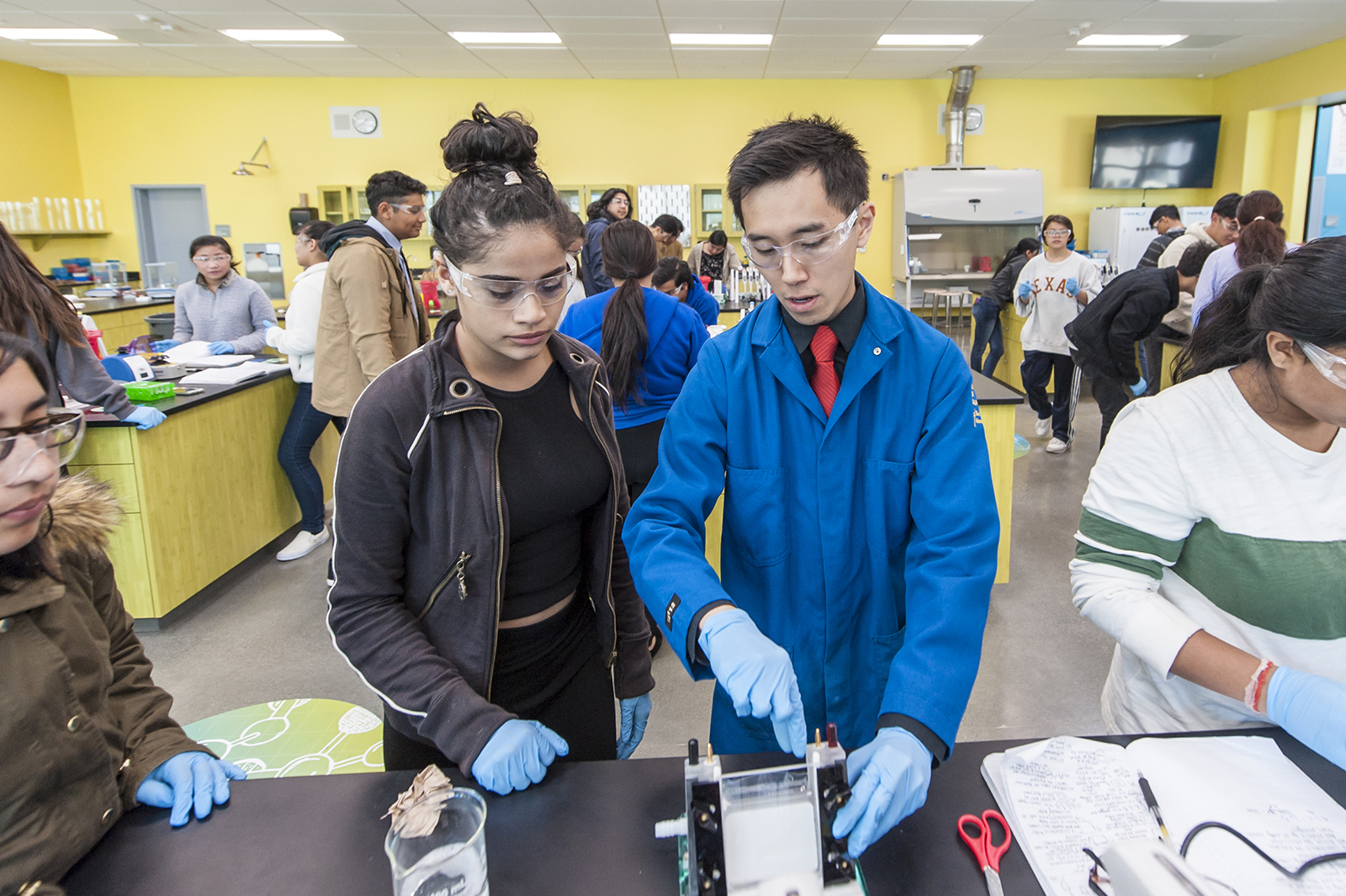
Pre-COVID, educator Rocky Ng works with students.
“We want to build a pipeline to the biotech industry,” says Rocky Ng, a biotech teacher at South San Francisco High School and SSFCTA member. “So, it was really important for them to have lab skills and be engaged while in distance learning. You can’t replace the values of labs or teachers in a classroom setting. But using our lab kits and items students can buy at the supermarket for at-home experiments is the next best thing.”
Biotech’s bounty
Biotech is the industry that created COVID-19 vaccines that will save millions of lives and get society up and running again. Biotech engineers also get credit for DNA advances that predict who is at risk for certain diseases, gene therapy to treat illnesses, evidence to solve crimes and find long-lost relatives, and cloning.
Other CTA members in the program: Cherie Cohen, SSFCTA; Jimmy Ikeda, Mary Rustia and Katherine Ward, San Mateo Union High School District Teachers Association; and Jaime Abdilla and Tyler Kochel, SDTA.